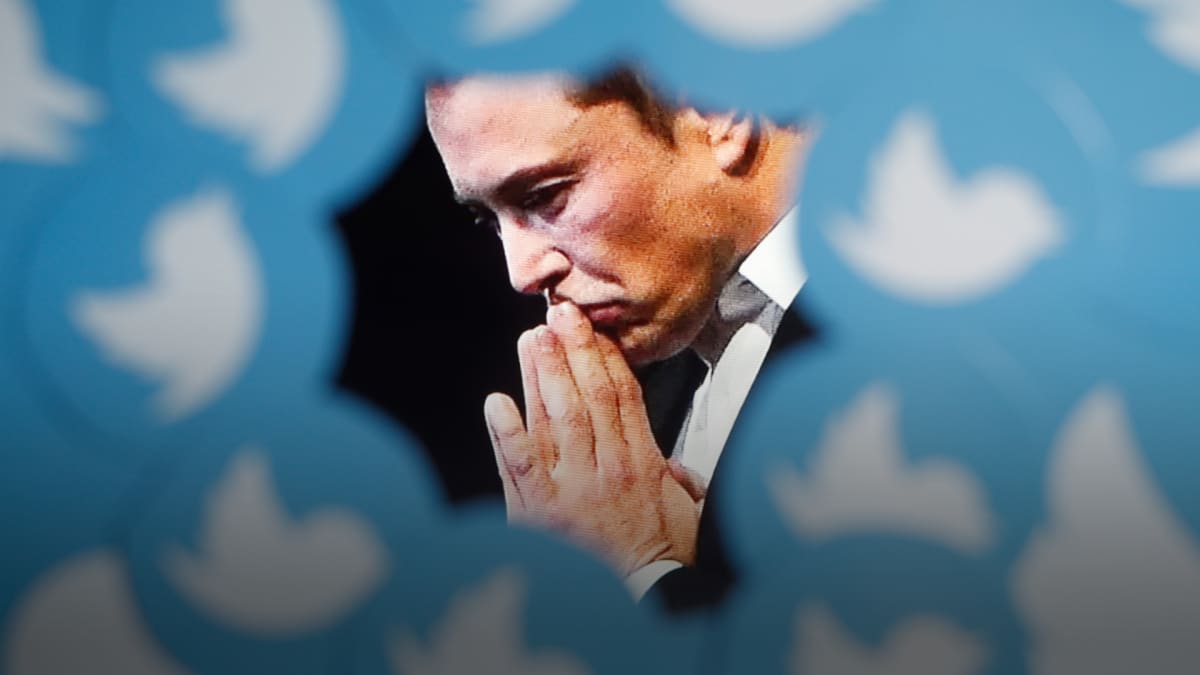
The interview will undoubtedly enter the pantheon of Elon Musk's charges against the mainstream media.
For his fans, his talk with the BBC, broadcast live on Twitter Spaces on the night of April 11 into 12, proves that the mainstream media have a progressive bias and are out to get their champion.
For Musk, the interview, listened to by millions of people, was an opportunity to show a pugnacious style that makes him an icon of the right wing and antiestablishment sector.
And his fans did not hesitate to fill Twitter with passages showing their champion attacking the interviewer.
One of the most shared and commented-on excerpts is one in which BBC journalist James Clayton asked Musk about the proliferation of hate speech on the platform since took over in late October.
The billionaire, who is CEO of Tesla, turned the table on the journalist and started asking him about the BBC's editorial decisions.
'Covid Is No Longer an Issue'
Musk, who describes himself as a free-speech absolutist, has eliminated most safeguards against racism, antisemitism and misinformation. This laissez-faire approach has scared away many advertisers.
Clayton: "We've spoken to people very recently who were involved in moderation and they just say there's not enough people to police this stuff, particularly around hate speech in the company. Is that one thing that you've been through?"
Musk: "Do you use Twitter? Do you see a rise in hate speech? Just a personal anecdote, I don't."
Clayton: "Personally my 'For You,' I get more of that kind of content personally, but I'm not gonna talk to talk for the rest of Twitter."
Musk: 'Do you see more hate speech personally?"
A little further on Musk asked him to describe a "hateful thing." Behind this question the billionaire wants to indicate that what Clayton calls hate speech is tweets he does not like -- basically that the journalist's approach to hate speech is subjective.
Clayton: "Just content that will solicit a reaction to something that may include something that is slightly racist or slightly sexist."
Musk: "So do you think is something is slightly sexist it should be banned?".
Clayton: "No, I'm not saying anything."
The conversation again takes on this tense tone when Clayton asks him about the covid-related misinformation on Twitter.
Clayton: "Covid misinformation. You change the covid misinformation."
[Musk didn't let him ask the question and interjected.]
Musk: "Has BBC changed covid misinformation?"
Clayton: "The BBC does not set the rules on Twitter. So I'm asking you.".
Musk: "No, I'm talking about the BBC misinformation about covid."
The billionaire explained that Twitter had removed the label attached to posts conveying false information about covid because "covid is no longer an issue."
He accused, without proof, the BBC of having conveyed misinformation related to masks and side effects of the vaccines. He then claimed that the British media had given in to government pressure to make changes to their editorial lines.
"This is not an interview about the BBC," Clayton responded. "I am not a representative of the BBC's editorial policy. I want to make that clear."
'My Dog Is the CEO of Twitter'
The billionaire, like his millions of followers, later boasted of having put the BBC in a tough spot.
"Penetrating deep & hard with @BBC," he added.
"I said BBC could come Twitter, then, to my surprise, a reporter shows up," he also said.
One of the defining moments occurred when Musk, who is CEO of Twitter while he seeks a successor, hinted at who truly runs the platform.
In his uniquely humorous way, he said his dog was chief executive officer.
"I am not the CEO of Twitter. My dog is the CEO of Twitter," the billionaire laughed. "He's got a black turtleneck; what more do you need?"
He underlined this with a tweet.
"He has black turtleneck & husky voice – what more do you need!?" the tech mogul tweeted on April 12.
Musk also reiterated that Twitter could go cash-flow positive this quarter, which would be a feat because the billionaire had passed huge debt -- the $13 billion margin loan he personally took out from major banks to finalize the Twitter deal -- to the company.
A reversal in the platform's financial situation would validate the company's austerity move. After dismissals and voluntary departures, Twitter now has 1,500 employees, he revealed during the interview, a fifth of the 7,500 people on staff when Musk took over.
Finally, Musk tried to counter the narrative that Twitter was dying by saying that most advertisers were back.
"Almost all of them have either come back or said they're coming back," the billionaire said.







